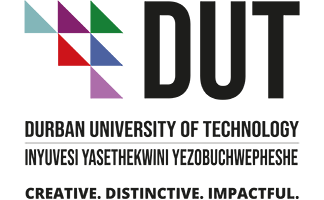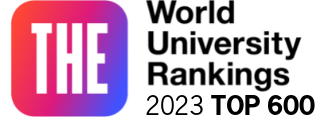Departments Engineering & the Built Environment
- Architecture
- Chemical Engineering
- Civil Engineering and Geomatics (Durban)
- Civil Engineering (Midlands)
- Construction Management and Quantity Surveying
- Electrical Power Engineering
- Electronic and Computer Engineering
- Industrial Engineering
- Mechanical Engineering
- Town and Regional Planning
- Urban Futures Centre
FEBE Programmes
Follow Us On Social Media
 @dut.febe
@dut.febe
 @dut.febe
@dut.febe
 DUT Faculty of Engineering and Built Environment
DUT Faculty of Engineering and Built Environment
 DUT Faculty of Engineering and Built Environment
DUT Faculty of Engineering and Built Environment
HOD Positions Available
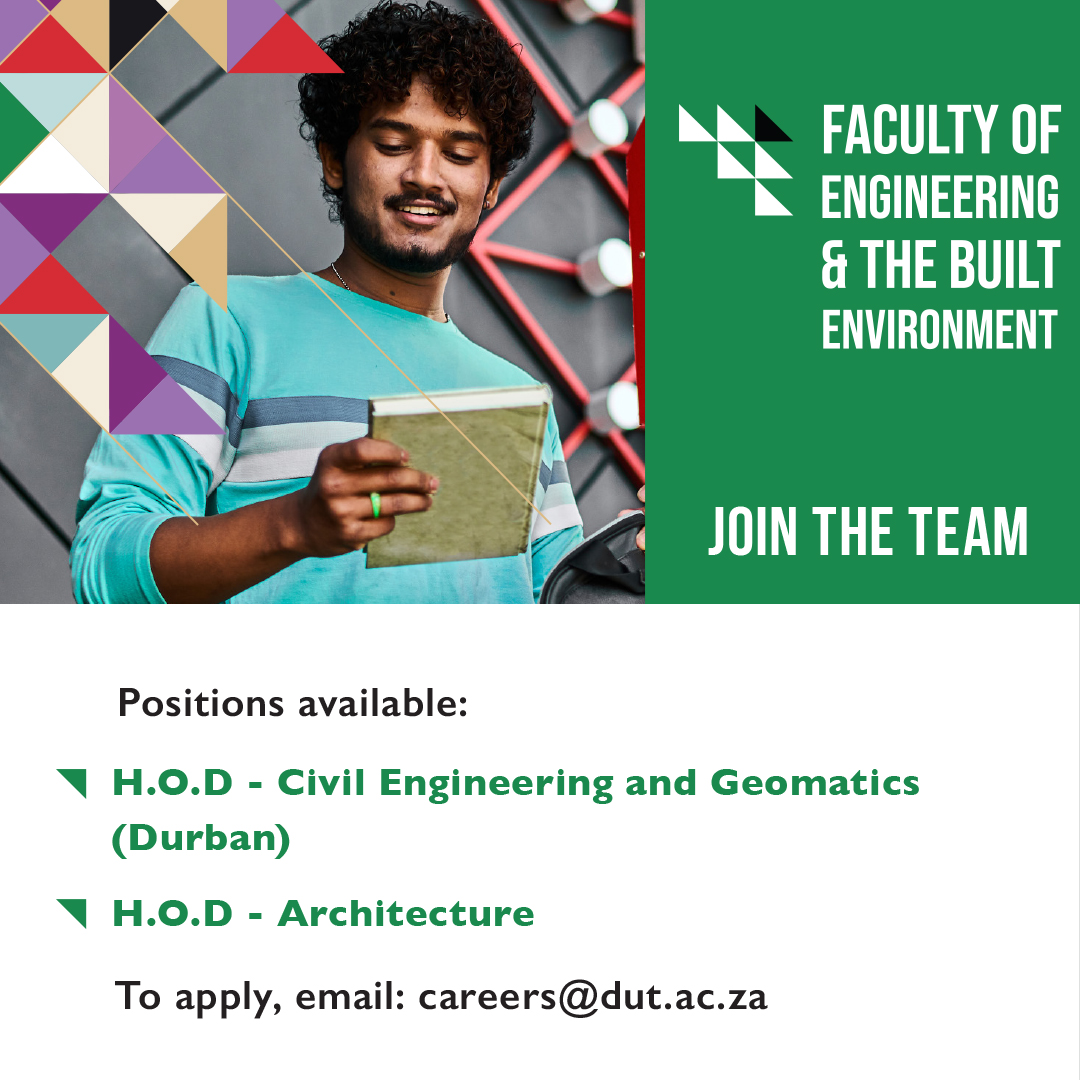
| Home | Projects | Public Events | Staff | Students | Social Media |
Current Projects
WARWICK ZERO WASTE
 Waste Management, Urban Informality and Climate Change: Innovative Zero-Waste Solutions from the Informal Street Markets of Warwick in Durban: Starting in 2021, this new 3-year project aims to co-create a zero-waste to landfill case study situated in the informal markets found in Warwick Junction in the city of Durban. Specifically, the project focuses on how informal workers (here a collective term for street vendors, market traders and waste pickers) in African marketplaces could provide innovative zero-waste models for cities across the continent and internationally. The Durban project is designed with three interlinked components; building connectivity and capacity, participatory research, and mainstreaming alternative ideas on waste management and climate change. The project is managed and implemented through a partnership of 3 organisations; the UFC@DUT, groundwork (gW), and Asiye eTafuleni (AeT). However, it also forms part of a broader, international package of zero-waste projects located in various African and other international countries, who collectively strive to mainstream inclusive zero-waste as a waste management, environmental justice and climate change solution. This project addresses key aspects of environmental justice and SDGs 11 (sustainable cities and communities), 12 (responsible production and consumption), 13 (climate action) and 17 (partnerships for the goals).
Waste Management, Urban Informality and Climate Change: Innovative Zero-Waste Solutions from the Informal Street Markets of Warwick in Durban: Starting in 2021, this new 3-year project aims to co-create a zero-waste to landfill case study situated in the informal markets found in Warwick Junction in the city of Durban. Specifically, the project focuses on how informal workers (here a collective term for street vendors, market traders and waste pickers) in African marketplaces could provide innovative zero-waste models for cities across the continent and internationally. The Durban project is designed with three interlinked components; building connectivity and capacity, participatory research, and mainstreaming alternative ideas on waste management and climate change. The project is managed and implemented through a partnership of 3 organisations; the UFC@DUT, groundwork (gW), and Asiye eTafuleni (AeT). However, it also forms part of a broader, international package of zero-waste projects located in various African and other international countries, who collectively strive to mainstream inclusive zero-waste as a waste management, environmental justice and climate change solution. This project addresses key aspects of environmental justice and SDGs 11 (sustainable cities and communities), 12 (responsible production and consumption), 13 (climate action) and 17 (partnerships for the goals).
Project Partners: Urban Futures Centre, GroundWork, Asiye eTafuleni, Global Alliance for Incinerator Alternatives (GAIA), Green Africa Youth Organisation (GAYO), Nipe Fagio, Purpose
Project Funder: Urban Movement Incubator
Principal Investigator: Dr. Kira Erwin (UFC) and Dr. Tamlynn Fleetwood (UFC)
Project Manager: Tanya Dayaram (TanyaD@dut.ac.za)
Website: Africa Zero-Waste Hub
Research Outputs:
Mlotshwa, N.; Dayaram, T.; Khanyile, A.; Sibanda, P.A.; Erwin, K.; Fleetwood, T. Working with Waste: Hazards and Mitigation Strategies Used by Waste Pickers in the Inner City of Durban. Int. J. Environ. Res. Public Health 2022, 19, 12986. https://doi.org/10.3390/ijerph192012986
BELLHAVEN HARM REDUCTION CENTRE
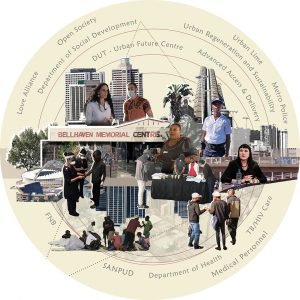
Bellhaven Harm Reduction Centre – Placemaking and Model for Frugal Institution Building: A week before Covid-19 lockdown was first enforced in March 2020, the UFC joined a group of state and non-state organisations to contemplate caring for the homeless urban population during lockdown level 5 and beyond. The UFC joined forces with a private medical team and a number of non-government organisations to establish a withdrawal management programme in the homeless safe spaces that were instated by the Municipality on the first day of lockdown. This medical and psycho-social programme operated out of the underground parking lot at Moses Mabhida Stadium for the first 10 weeks of lockdown. The main organisations responsible for the daily operations of this initiative were the UFC and a public health NGO, Advance Access and Delivery. The Office of the Deputy Mayor played a key role in bringing other Municipal Departments on board including Health, Social Development, Procurement and Metro Police. The success of this information in providing much needed services to homeless people with a substance use disorder was highly acclaimed by government and by the general public. It received significant press attention both locally and internationally as a best practice model for providing harm reduction services during Covid-19 lockdown.
On the 1st of June 2020, the eThekwini Municipality authorised that one of its buildings, Bellhaven Memorial, be used as a space for the provision of evidence based harm reduction services to homeless and low-income people who use drugs. This is the first triple helix project of its kind in South Africa. The directors of the programme are from three organisations – the Urban Futures Centre, the South African Network of People who Use Drugs, and Advance Access and Delivery. Belhaven Harm Reduction Centre has now been in operation for a year. It is low threshold which means that there are almost no barriers to accessing treatment at the Centre. This initiative has already received a number of awards including the 2020/2021 HSRC/USAF Inaugural Team Award for Excellence in Social Science and Humanities contribution. It has also been recognised by the South African Cities as an excellent ‘good hood’ initiative with long term placemaking implications. A number of medical and psycho-social services are provided at the Centre, but it has quickly also become a hub for student internships and in-service training, as well as for research across a vast range of disciplines. Public events are held at the Centre, making it an ideas work space. The Belhaven Harm Reduction Centre is currently being recognised by National government (Health and Social Development) as a model for providing harm reduction services in a manner that comply with national and international best practice. It is also recognised as a frugal institution, with no overhead costs other than that of the medication and the salaries of health care workers. The UFC’s central role in the establishment and running of this harm reduction centre are in line with its mission to develop models for urban interventions aimed at improving the lives of the most vulnerable urban dwellers. It is also a space of urban experimentation and knowledge generation.
Project Partners: Urban Futures Centre, Advanced Access & Delivery, The South African Network of People Who Use Drugs (SANPUD), TB HIV Care
Project Funder: Advanced Access & Delivery, Love Alliance, Open Society Foundations, The South African Network of People Who Use Drugs (SANPUD)
Principal Investigators: Prof. Monique Marks (MoniqueM@dut.ac.za) and Mr. Michael Wilson (Michaelw@aadglobal.org)
Research Outputs:
Visit the Bellhaven Harm Reduction Centre website here.
Watch Good Hood Stories: Bellhaven Harm Reduction Centre here.
Marks, M. and Moodley, S. (2021) Reaching High: Translating Emergent Practices of Street-Level Drug Users to Institute Harm Reduction in Durban—Implications for Urban Governance. Urban Forum. https://doi.org/10.1007/s12132-021-09452-6
LALELA ULWANDLE - LISTEN TO THE SEA
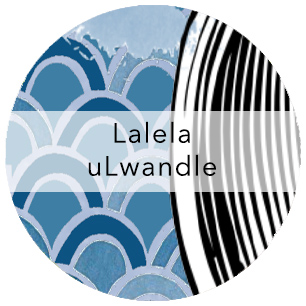
Lalela uLwandle (‘Listen to the Sea’ in isiZulu) is an innovative, creative public engagement and participatory research project that draws attention to the importance of listening to a chorus of voices for inclusive ocean governance. The idea for the project was directly inspired by the University’s response to a call for assistance to facilitate a public consultation meeting held in Wentworth (Durban) in October 2018. The meeting was convened by the South Durban Community Environmental Alliance (SDCEA), and it brought together community representatives from several small towns along the KZN coastline, and the Petroleum Association of South Africa (PASA) to discuss the application for permits made by an international company to explore oil and gas opportunities along the coast. It was clear that many people felt they had not been adequately consulted, and the consultation process fell into the trap of reducing ‘the community’ into a homogenous group, as either ‘for or against’ development, with little nuanced understanding or acknowledgement of the complex perspectives, knowledge and concerns being voiced.
Thus the inspiration for the project came about in questioning how we could expand our imaginations of governing the seas by listening to the diverse (and often untold) stories of people living with the ocean. The research participants included small-scale and subsistence fishers, marine scientists, activists, church followers, marine educators at the aquarium, and sangomas (traditional healers). The narrative data collected were then worked into a theatre script through a collaborative process led by the Empatheatre specialists. Lalela uLwandle tells the stories 3 people: Nolwandle, a marine educator whose mother is a Zionist and grandmother a sangoma; Niren a young environmental activist whose family has a long history of sein-net fishing brought here from India; and Faye, a retired marine biologist living on the South Coast reflecting on her role in science and activism.The stories recount how the ocean is linked to various livelihoods, medicine and healing, scientific awe, study and wonder, and to spiritual connections with ancestors and our loved ones who have died. In the telling, the performance deals explicitly with acts of past and present power and exclusion in South Africa, and it explores the complex tensions between economic development, environmental justice, and environmental conservation. During the Lalela uLwandle tour along the KZN coastline audience members sat in a listening circle with the actors and bore witness to these intergenerational stories of the sea, these post-performances formed another layer of research data. This project addresses SDGs 10 (reduce inequalities), 13 (climate action), 14 (life under water), and 17 (partnerships for the goals)
Project Partners: Urban Futures Centre, Environmental Learning Research Centre (ELRC) at Rhodes University, Empatheatre, South Durban Community Environmental Alliance (SDCEA) and GroundWork.
Project Funder: One Ocean Hub (OOH), a global action research network led by Strathclyde University and funded by the UKRI Global Challenge Research Fund.
Principal Investigators: Dr. Kira Erwin (KiraE@dut.ac.za) and Dr. Dylan McGarry (ELRC)
Research Outputs:
Listen to the Lalela uLwandle performance podcast here
Listen to the For Water For Life interview podcast here.
Watch Lalela uLwandle illustrated short film here.
Read The Conversation article here, and see Empatheatre for more details.
WELBEDACHT EAST
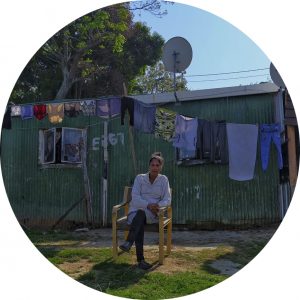
Welbedacht East Placemaking Project: The social unrest in KwaZulu-Natal in July 2021 prompted concern around the gains made by post-apartheid around social cohesion and building non-racialism. In participating in a national dialogue with the State President as respondent to panelists as part of the Nelson Mandela Day Inaugural Lecture, Prof Monique Marks from the Urban Futures Centre proposed the idea of “platforms of truth” for open and honest conversations around dealing with deep-seated prejudices and the need for more active embracing of diversity and difference. In actioning this initiative, an evening engagement session with the Welbedacht East community was held in August 2021.
Welbedacht East is situated in the south of Durban, 23 kilometers from Pinetown, 43 kilometers from Durban, and 15 kilometers from Chatsworth Centre (Sokhela, 2006). The area was part of the first phase of one of the largest sum clearance projects in the history of the eThekwini Municipality, and is regarded as a badly located project on the periphery of the city, with long commuting distances to work, no income opportunities within the area, and little state provided social facilities (Sokhela, 2006).
Whilst outsiders may be struck at the poor levels of service provision, at the meeting, community members spoke passionately about their connection with Welbedacht which they identified as being “a beautiful place”. They lamented the fact that the physical and spatial marginalisation of this community has been extended to their history being hidden. For many of them, Welbedacht is a special place because of the rich social relationships and networks that have been formed there, partly as a result of the process of resettlement and through the need for people to mutually support each other through times of economic hardship.
One important request emerged from the meeting – that the university plays a role in ensuring that Welbedacht was not forgotten but the story of its community be heard, and its history be recorded and even celebrated through articles, photography or other ways of remembering.
Against this background and interest from the community, this research was borne as insufficient research has been done into exploring how ordinary people experience life in peripherally located areas. More specifically even less scholarly attention has been paid to people’s experience of life in resettlement areas after a long period of stay. In this case study, which saw the Welbedacht project conceptualized exactly 20 years ago, there is a unique opportunity to assess how residents have responded to the state resettlement project and to explore how over a period of time communities are able to transform resettlement spaces into a place they call home.
The overall research aim is to explore how the community make sense of Welbedacht as a place and their role in the place-making process.
The objectives of the study are:
- To assess how ordinary residents perceive their local surroundings
- To understand the factors responsible for active community place-making
- To explore the relationship between social integration, neighbourliness and natural surveillance on perceptions of community safety
- To identify lessons on “racial integration” from the Welbedacht community that may inform contemporary thinking on social cohesion.
The Urban Futures Centre has a history of working with eThekwini municipal departments and is excited to partner with the Architecture Department in this project not only to capture photographs but to assist with short term interventions in the built environment.
Project Partners: Urban Futures Centre, eThekwini Municipality, Expanding Minds Alleviating Poverty (EMAP), Reuters Foundation, Sarva Dharma Ashram
Principal Investigators: Dr. Sogen Moodley (SogendrenM@dut.ac.za) and Prof. Monique Marks (MoniqueM@dut.ac.za)
NRF WATER-SOCIETY-WASTE NEXUS PROJECT
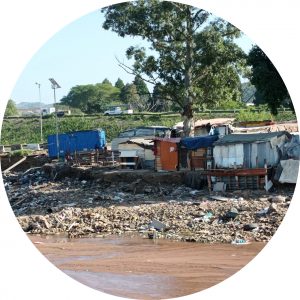
2021-2023 NRF-funded Project on Transforming Relations in the Water-society-waste nexus: In December 2020, the National Research Foundation’s Global Change Social Sciences Research Programme awarded a research grant to a team from the University of KwaZulu-Natal (UKZN), University of the Western Cape (UWC) and the Durban University of Technology (DUT). The study, entitled ‘Transforming relations in the water-society-waste nexus: Localizing Global Environmental Change (GEC) efforts towards just and inclusive sustainability in South Africa’ will be running from 2021-2023. The project is being led by Prof Catherine Sutherland at UKZN. Dr Jennifer Houghton, a research associate of the UFC leads the DUT component of the project. One DUT PhD student, Mthabiso Phungula, is being funded through the project, and is conducting her research under the supervision of Dr Houghton.
Overall, the team of researchers and post graduate students from the three universities are focused on the localisation of efforts to address global environmental change. The impact of GEC is experienced profoundly in relations between water, waste and society, as they are linked to climate change, changes in hydrological systems and land use. The study therefore uses the lens of water to examine the outcomes of GEC processes in local spaces, and the consequences of local practices at multiple spatial, temporal and socio-political scales on GEC.
Within the project, Dr Houghton is involved in examining how social transformations for sustainability can be achieved by shifting relations within the water-society-waste nexus in various cases across eThekwini Municipality, the City of Cape Town and their city-regions. During 2021, the project was initiated, research contracts signed between the partner institutions, ethical clearance being granted, one theory workshop having taken place within the research team and initial data collection related to waste management within two informal settlements within Durban taking place in December 2021. Project funding of R282 000 for 2021 was received by the end of December 2021.
Project Partners: School of the Built Environment and Development Studies, University of KwaZulu-Natal; Department of Geography, Environmental Studies & Tourism, University of the Western Cape; DSI/NRF/CSIR Chair in Waste and Society, Department of Social Work, University of the Western Cape
Project Funder: South African National Research Foundation (NRF)
Principal Investigator: Dr. Jennifer Houghton (JenniferH1@dut.ac.za)
Completed Projects
FISHERS TALES
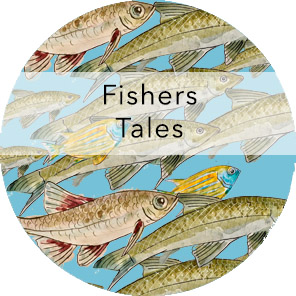
‘Fishers’ Tales’ is an arts-based storytelling project that aims to collect the wondrous tales that fishers enjoy telling about their ocean adventures, where each story is accompanied by a unique artwork. The stories and accompanying artwork seek to highlight the similarities and differences in fishers’ engagements with the ocean; provoking reflection, empathy and dialogue. In this sense, the project hopes to build both awareness and solidarity with subsistence and small-scale fishers, as well as contribute to the production of knowledge on how the ocean is used and valued by diverse actors. The project contributes towards a bigger One Ocean Hub project for inclusive and transformative approaches to ocean governance. The project is managed by the UFC@DUT in partnership with the South Durban Community Environmental Alliance (SDCEA), and it is funded through the Deep Emotional Engagement Programme (DEEP) Fund (administered by the One Ocean Hub (OOH) programme). This project addresses SDGs 11 (sustainable cities and communities) and 14 (life under water).
Project Partners: Urban Futures Centre, South Durban Community Environmental Alliance (SDCEA)
Project Funder: One Ocean Hub (OOH), a global action research network led by Strathclyde University and funded by the UKRI Global Challenge Research Fund.
Principal Investigator: Dr. Kira Erwin (UFC) and Sherelee Odayar (SDCEA)
Digital Storytelling Project Manager: Karen Ijumba (KarenI@dut.ac.za)
Research Outputs:
Visit The Fishers’ Tales website here.
Sunde, Jackie and Erwin, Kira. (2020). Cast Out: The Systematic Exclusion of the Kwazulu-Natal Subsistence Fishers from the Fishing Rights Regime in South Africa. KZN Subsistence Fisher’s Forum and South Durban Community Environmental Alliance (SDCEA).
DRUG USE IN THE CITY
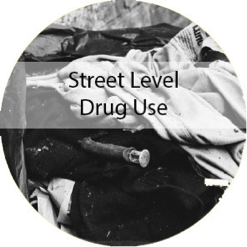
Drug Use In The City: This project sits at the nexus between communities affected by street level use, the users themselves and the various institutions responding to drug addiction in the city of Durban. It is a trans-disciplinary research project, bringing together those trained in sociology, criminology, education, art, public health, addiction medicine, and drama. As a participatory action research project it will also include city officials, police officers and civil society actors in designing the research and in developing strategies. The purpose of this initiative is to gather nuanced narratives from all those affected and begin investigating appropriate responses both at grassroots and policy levels. A key aim of this project is to provide the very human and embodied face of this drug, and enabling a more enriched and grounded way of coping with drug use, and exploring what interventions are best suited for dealing with problematic drug use in a South African urban context.
While this project will focus on Whoonga (low grade heroin) use and its harmful effects on individuals and communities in Durban, the results of this project will have very real outcomes for other cities dealing with the dilemma of the harmful effects of street level drug use. Ways of reducing harm for all affected persons is a fundamental of this project. This project has an important innovation and engagement component. In April 2017 the Urban Futures Centre together with TB/HIV Care Association launched South Africa’s first low in come Opioid Substitution Therapy (OST) Demonstration Project. 50 low income heroin users, mostly smokers, are beneficiaries of this project. The project is an important research base for testing out harm reduction locally, and for advocating for better policies and interventions in regard to drug use disorders. Funding for this demonstration project comes from: the National Institute of Humanities and Social Science; Mainline; and Open Society Foundation. Equity Pharmaceuticals have provided an opioid substitute, Methadone, at no cost to the project. This project addresses SDGs 3 (good health and wellbeing), 10 (reduce inequalities), and 11 (sustainable cities and communities)
To learn more about the OST programme please click here to visit the project website. For more information on drug policy in South Africa please click here to visit the SA Drug Policy Week 2018 website.
Project Partners: TB/HIV Care Association, King Edward Hospital; KZN Department of Health; Centre of Criminology, University of Cape Town; HIV/TB Care; Durban Metropolitan Police; Safer Cities Department, eThekwini Municipality; Dennis Hurley Centre; Big Brotherhood Community Theatre Group; Central Drug Authority; UNODC (Pretoria Office); doctors in private and public practice.
Principal Investigator: Prof. Monique Marks (MoniqueM@dut.ac.za)
Research Outputs:
Marks, M, Gumede, S and Shelly, S. (2017) Drugs are the solution not the problem: Exploring drug use rationales and the need for harm reduction practices in South Africa. Acta Criminologica, 39(5). 115-128.
Scheibe, A, Shelly, S, Versfeld, A. Howell, S. and Marks, M. (2017). Safe treatment and the treatment of safety: Call for a harm reduction approach to drug use disorders in South Africa. South African Health Review. 20: 198-207. 189-207.
Scheibe, A., Marks, M., Shelly, S., Gerardy, T., Domingo, A., Hugo, T. (2018). Developing an advocacy agenda for increasing access to opioid substitution therapy as part of comprehensive services for people who use drugs in South Africa. South African Medical Journal. 108(10): 800-802.
Schiebe, A., Shelly, S., Gerady, T., Von Hofmeyer, T., Schneider, A., Padayachee, K., Naidoo, S., Mthweni, K., Matau, A., Hausler, H., Marks, M. (2020). Six-month retention and changes in quality of life and substance use from a low-threshold methadone maintenance therapy programme in Durban, South Africa. Addiction Science and Clinical Practice 15(1): 1-11.
Marks, M., Sheibe, A., and Shelly, A. (2020). High retention in an opioid agonist therapy project in Durban, South Africa: The role of best practice and social cohesion. Harm Reduction Journal 7(25) 1-15.
Stowe, MJ., Scheibe, A., Shelly, S., and Marks, M. (2020). Covid-19 restrictions and increased risk of overdose for street based people with an opioid dependence in South Africa. South African Medical Journal. 40.
BLUE SKIES - NARRATIVES OF HOME AND NEIGHBOURHOOD
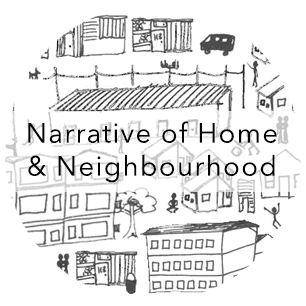 Narratives of Home and Neighbourhood: This project broadly examines how state housing models shape the social landscape of South Africa, in this study in the city of Durban. In doing so it aims to critically explore the paradigms and pedagogies within the disciplines of the built environment, namely those involved in urban planning such as town planning, architecture and urban design. The broad disciplinary field of the built environment has not been as transformative as had hoped in creating equal and socially just urban spaces. This project explores what urban planning could do better through using a creative and participatory action research framework. The data focuses on the perspective of the people who live in state housing units, providing a much-needed qualitative micro-level focus in a field that has existing rich literature on the macro economic and social debates around housing. Various models of state housing should be locations for investigating not only what it means to make a place a home, but how these built forms shape ideas of self, neighborhoods and broader social belonging. Five research were selected within the Durban area. Research at each site experiments with creative and participatory methods and is run by a team of multidisciplinary members from the fields of sociology, planning, architecture, public art, drama, film and photography amongst others. Click here for the project website, a full set of research reports is available on the website. This project addresses SDG 10 (reduced inequalities) and 11 (sustainable cities and communities).
Narratives of Home and Neighbourhood: This project broadly examines how state housing models shape the social landscape of South Africa, in this study in the city of Durban. In doing so it aims to critically explore the paradigms and pedagogies within the disciplines of the built environment, namely those involved in urban planning such as town planning, architecture and urban design. The broad disciplinary field of the built environment has not been as transformative as had hoped in creating equal and socially just urban spaces. This project explores what urban planning could do better through using a creative and participatory action research framework. The data focuses on the perspective of the people who live in state housing units, providing a much-needed qualitative micro-level focus in a field that has existing rich literature on the macro economic and social debates around housing. Various models of state housing should be locations for investigating not only what it means to make a place a home, but how these built forms shape ideas of self, neighborhoods and broader social belonging. Five research were selected within the Durban area. Research at each site experiments with creative and participatory methods and is run by a team of multidisciplinary members from the fields of sociology, planning, architecture, public art, drama, film and photography amongst others. Click here for the project website, a full set of research reports is available on the website. This project addresses SDG 10 (reduced inequalities) and 11 (sustainable cities and communities).
Project Partners: Miranda Jahangeer, Doung Jahangeer, Vicky Sim, Cathy Sutherland, Ashling McCarthy, Russel Hlongwane, Joanne Lees, Angela Buckland, Tiny Mungwe, Rachel Matteau Matsha, Urban Earth, Open Data Durban and Marc Kalina
Principal Investigators: Prof. Monique Marks (MoniqueM@dut.ac.za) and Dr. Kira Erwin (KiraE@dut.ac.za)
Funder: South African National Research Foundation (NRF) Blue Skies Grant
DREAMING THE PORT CITY
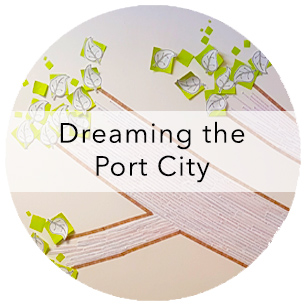 Dreaming the Port City project aims to create a space for constructive engagement and dialogue around the port and its role in the city of Durban. Dreaming workshops retain the focus on future visions and imaginings on Durban as a Port City, but critically enables engagement with multiple visions with specific objectives in mind. The Port City Dreaming Workshops are facilitated by the Urban Futures Centre, a space that is conducive to listening, thinking and problem solving. The project is designed as a process of bringing together a group of people who will continue to engage, share information and visions, as well as identify areas of tension and how best to work with these.
Dreaming the Port City project aims to create a space for constructive engagement and dialogue around the port and its role in the city of Durban. Dreaming workshops retain the focus on future visions and imaginings on Durban as a Port City, but critically enables engagement with multiple visions with specific objectives in mind. The Port City Dreaming Workshops are facilitated by the Urban Futures Centre, a space that is conducive to listening, thinking and problem solving. The project is designed as a process of bringing together a group of people who will continue to engage, share information and visions, as well as identify areas of tension and how best to work with these.
Partners: Urban Future Centre, the eThekwini Strategic Planning Department, Logistics and Freight Companies, Civil Society Activists and Transnet,
Principal Investigators: Prof. Monique Marks (MoniqueM@dut.ac.za) and Dr. Kira Erwin (KiraE@dut.ac.za)
IMAGINING A CITY WITHOUT WALLS
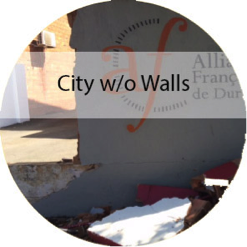
The Imagining a City Without Walls project was initiated in April 2014. The aim of this project is to bring together key network actors to interrogate the relationship between home security and defensive boundaries, particularly walls. Through working closely with policing actors as our key partners, the roles that walls play in suburban spaces is being investigated. This has already opened pathways for fresh deliberations and imaginings about suburban boundary design. The approach of Crime Prevention through Environmental Design is critical in framing this project and its design outcomes. The basic assumption and dominant design ‘imperative’ that high walls make suburban residents safer will be questioned through a process of conversations, ethnographic explorations and incident reports.
Arguably the most exciting part of this project is the real time urban ‘experiment’ that has begun. The Alliance Francaise in Durban has decided, as a result of this project, to break down their boundary wall and in its place create a boundary that is more transparent, welcoming, aesthetically pleasing while at the same time optimising safety through natural surveillance. In 2016 an architectural competition was held to find the best possible alternative design to the boundary wall. An excellent set of designs were provided. Three designs were shortlisted. The competition was won by Durban architect and urban designer, Paul Wygers. We aim to have the new boundary structure in place by December 2018. This project is viewed as catalytic. Breaking down the wall of an iconic cultural institution, we believe, will send a strong message to other suburban dwellers about the importance of natural surveillance and of human connectivity in the quest for a safe and socially coherent city.
Project Partners: Alliance Francise Durban; DUT Architecture Department; Council for Scientific and Industrial Research; Blue Security; ADT; Durban Metropolitan Police; SAPS Umbilo and Westville; Morningside Residents’ Committee; dala Architects; eThekwini Safer Cities.
Principal Investigator: Prof. Monique Marks (MoniqueM@dut.ac.za)
MIGRATION AND THE INCLUSIVE CITY
 Migration and The Inclusive City: The history of South Africa is a history of migratory flows; in the long view of history we are in one way or another all migrants to the modern geographic borders of South Africa. Under apartheid discriminatory segregation policies created a large black migrant labour force to supply the urban areas, radically shaping the urban landscape and rural and urban networks. Partly due to past colonial and apartheid ideology, there is in democratic South Africa a continued emphasis on different social, cultural and even moral spheres associated with spatial geographies and categories of people. The most recent of which is the discriminatory discourse around the flows of migrants, immigrants and refugees coming into South Africa from other African countries. There have been a spate of violent xenophobic attacks in South Africa and yet we still lack a responsive local policy framework or proactive educational and awareness campaigns. This project uses a gendered lens to collect the oral history of migrant women in Durban. This project moves the diverse stories of women and other migrants in Durban directly into strategically planned educational dialogues and a strategic research report that offers policy framework suggestions for key stakeholders. The project brings together experienced academics, civil society activists as well as a collective group representing migrants from 15 African countries that live and work in Durban. It is innovative in that it uses creative methods of storytelling (oral histories, radio scripts, short documentaries and community participatory theatre) to directly influence government knowledge on their own practices and policy discussions around social integration and inclusion of migrants in the city. The full project website, including all the oral histories, is available here. This project addresses SDG 5 (gender equality) and 8 (decent work and economic growth).
Migration and The Inclusive City: The history of South Africa is a history of migratory flows; in the long view of history we are in one way or another all migrants to the modern geographic borders of South Africa. Under apartheid discriminatory segregation policies created a large black migrant labour force to supply the urban areas, radically shaping the urban landscape and rural and urban networks. Partly due to past colonial and apartheid ideology, there is in democratic South Africa a continued emphasis on different social, cultural and even moral spheres associated with spatial geographies and categories of people. The most recent of which is the discriminatory discourse around the flows of migrants, immigrants and refugees coming into South Africa from other African countries. There have been a spate of violent xenophobic attacks in South Africa and yet we still lack a responsive local policy framework or proactive educational and awareness campaigns. This project uses a gendered lens to collect the oral history of migrant women in Durban. This project moves the diverse stories of women and other migrants in Durban directly into strategically planned educational dialogues and a strategic research report that offers policy framework suggestions for key stakeholders. The project brings together experienced academics, civil society activists as well as a collective group representing migrants from 15 African countries that live and work in Durban. It is innovative in that it uses creative methods of storytelling (oral histories, radio scripts, short documentaries and community participatory theatre) to directly influence government knowledge on their own practices and policy discussions around social integration and inclusion of migrants in the city. The full project website, including all the oral histories, is available here. This project addresses SDG 5 (gender equality) and 8 (decent work and economic growth).
Project Partners: Democracy Development Program (DDP); African Solidarity Network (ASONET); Refugee Social Services and the Denis Hurley Centre
Principal Investigator: Dr. Kira Erwin (KiraE@dut.ac.za)
Research Outputs:
Erwin, Kira. (2020) “Storytelling as a political act: towards a politics of complexity and counter-hegemonic narratives.” Critical African Studies p:1-16. DOI: 10.1080/21681392.2020.1850304
Erwin, Kira and Jeremy Grest (2018) ‘Trace your finger down a map and you will see how far I have come’: Strategic report on Migration and the Inclusive City in Durban, South Africa. UFC Research Report No. 1.
DREAMING WORKSHOPS: YOUNG PEOPLE’S IMAGINING OF A FUTURE SOUTH AFRICA
Dreaming Workshops: This research pr ojects aims to explore how young people, in this case Grade 11 students in Durban, imagine a socially just and more equal future South African society. Specifically, in this project we are interested in how young people imagine a future society in relation to ideas of race, racism and non-racialism. Existing studies on non-racialism indicate that for many older South Africans the realisation of non-racialism is best left to the younger generations who do not carry the historic baggage of their own generation. Romanticising ‘untainted’ youth as able to transcend a troubled past is not an unusual response in transitional societies. However we need to be cautious of displacing responsibility for change onto the young in society particularly given the various ways in which inequality is reproduced in South Africa. Acknowledging this we do think it is important to listen carefully to the imaginings of young people’s dreams of a more socially just world. To do this we use a methodology of Dreaming Workshops, these sessions not only offer a space for utopian dreaming but importantly then use these dreams to identify and reflect on practices and power relations in the present that create obstacles or enablers to these future trajectories.
ojects aims to explore how young people, in this case Grade 11 students in Durban, imagine a socially just and more equal future South African society. Specifically, in this project we are interested in how young people imagine a future society in relation to ideas of race, racism and non-racialism. Existing studies on non-racialism indicate that for many older South Africans the realisation of non-racialism is best left to the younger generations who do not carry the historic baggage of their own generation. Romanticising ‘untainted’ youth as able to transcend a troubled past is not an unusual response in transitional societies. However we need to be cautious of displacing responsibility for change onto the young in society particularly given the various ways in which inequality is reproduced in South Africa. Acknowledging this we do think it is important to listen carefully to the imaginings of young people’s dreams of a more socially just world. To do this we use a methodology of Dreaming Workshops, these sessions not only offer a space for utopian dreaming but importantly then use these dreams to identify and reflect on practices and power relations in the present that create obstacles or enablers to these future trajectories.
The project website gives full details of the project and offers a downloadable PDF for those who wish to use the Dreaming Workshop methodology, click here to visit the website.
Principal Investigator: Dr. Kira Erwin (KiraE@dut.ac.za)
Co-investigator: Dr. Kathryn Pillay (Pillaykat@ukzn.ac.za)
Funder: Stellenbosch Institute for Advanced Studies
RESILIENCE AND SPATIAL JUSTICE IN SOUTH AFRICA'S BUILT ENVIRONMENT
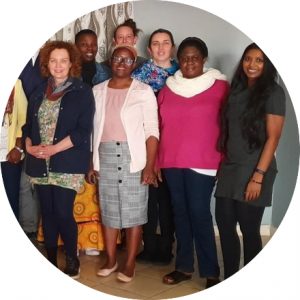 This three year project supports full time PhD students across three institutions through a collaborative supervision process. The project focuses on the South African urban context with eight PhD topics exploring a variety of interlocking themes that address questions of resilience and spatial justice from social, economic, environmental and socio-political dimensions at a range of scales.
This three year project supports full time PhD students across three institutions through a collaborative supervision process. The project focuses on the South African urban context with eight PhD topics exploring a variety of interlocking themes that address questions of resilience and spatial justice from social, economic, environmental and socio-political dimensions at a range of scales.
More information on this project is available here.
Principal Investigators: Prof. Monique Marks (MoniqueM@dut.ac.za) and Dr. Kira Erwin (KiraE@dut.ac.za)
KENNETH GARDENS COMMUNITY PROJECT
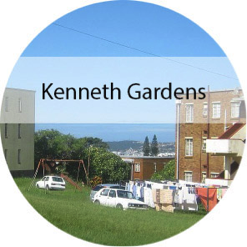
Kenneth Gardens Community Project is a joint DUT/Community partnership that focuses on the Kenneth Gardens estate, Durban’s largest municipal subsidised low-cost housing estate. The project has both research and community engagement components, and sees these components as integral to each other rather than as separate spheres of interaction. The primary research components include a 3 year Oral History project that will cumulate in a book titled: Voices of Resilience: A Living History of the Kenneth Gardens Municipal Housing Estate in Durban South Africa. Research project also include evaluation on engagement activities as well as a range of smaller research projects on various aspects of the community life such as youth narratives and Health. The established engagement projects include a free homeopathic and food nutrition clinic run every Wednesday in the estate, as well as capoeira, dance and digital media programmes for younger residents and youth.
Partners: Senzokuhle Community Based Organisation (NPO); Carrots and Peas (NPO); DUT Homeopathy and DUT Food and Nutrition, Glenridge Church; Glenmore Primary School; Rotary Club Morningside and Isipingo; Turquoise Harmony; Flatfoot Dance Company, Maria Cristina Giampietri
Principal Investigators: Prof. Monique Marks (MoniqueM@dut.ac.za) and Dr. Kira Erwin (KiraE@dut.ac.za)
Funder: South African National Research Foundation (NRF) Community Engagement Grant
Research Outcomes:
Marks Monique, Kira Erwin and Tamlynn Fleetwood (2018)Voices of Resilience: A Living History of the Kenneth Gardens Municipal Housing Estate in Durban. UKZN Press: Durban.
Erwin, Kira (2017) “You make a home out if it, you make a place of it”: some unexpected narratives from a social housing estate in Durban”. Transformation 93 68-90.
Marks, M. and Erwin, K. (2016) “Interfering politicians: the underbelly of ‘coproduction’ within a South African community engagement context”. Community Development Journal. doi:10.1093/cdj/bsw021.
Marks Monique, Erwin Kira and Mosavel Maghboeba (2015) The inextricable link between community engagement, community based research and service learning: the case of an international collaboration Building Global Bridges project. The South African Journal of Higher Education, 29(5) 214–231.
Erwin Kira (2015) Race, place and identity in Kenneth Gardens: narratives from a low-cost housing estate in Durban. Urban Forum 26(2) 187-201.
Erwin Kira, Marks Monique and Couchman Ingrid (2014) Homeopathic health care in a low-income housing estate in Durban: possibilities for a plural health care model in South Africa. Journal of Health, Wellness and Society 3:3.
BLUE SKIES - REIMAGINING A DISCIPLINE: A RADICAL EXAMINATION OF TOWN PLANNING
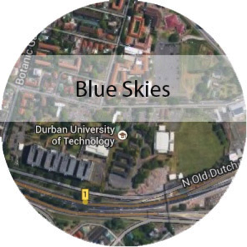
With increasing urbanization and increasing levels of poverty and disparity within urban spaces there is no better time than the present to ask how we can do better in regard to urban planning and design? This project brings together a diverse range of scholars and practitioners to deliberate on unexplored and alternative practices of urban design and planning within the context of South African cities.
The DUT has already completed the process of putting together a proposed Master plan for creating an educational precinct around the university that incorporates neighbour city spaces. The proposed plan links its various city campuses in a walking corridor through the Curry’s Fountain and Warwick Junction. This DUT proposal acts as a live testing site for three small pilot projects that incorporate and make use of alternative methodological practices that lead to design proposals. Once completed the data and findings from the pilots will be contrasted with the original Masterplan to see whether these findings raise critical questions about how we go about planning and design spaces. The pilot findings will present alternatives that work with and enhance everyday livelihoods and experiences rather than design them out of the plan. The pilots will enable reflection on, and possibly redevelopment of, the methodologies we imagine would benefit students and staff practicing in the field of urban design and planning. In this way the first year of the project becomes a laboratory for developing radical new concepts within a disciple and for testing these alternatives within a live project.
Partners: Glen Robbins; Peter Robinson; Soobs Munsamy; MILE; Bridget Horner (UKZN); Miranda Young-Jahangeer (UKZN); Doung Jahangeer; Abigail Knox; Jonathan Edkins, Vicky Sims
Principal Investigators: Prof. Monique Marks (MoniqueM@dut.ac.za) and Dr. Kira Erwin (KiraE@dut.ac.za)
Funder: South African National Research Foundation (NRF) Blue Skies Grant
